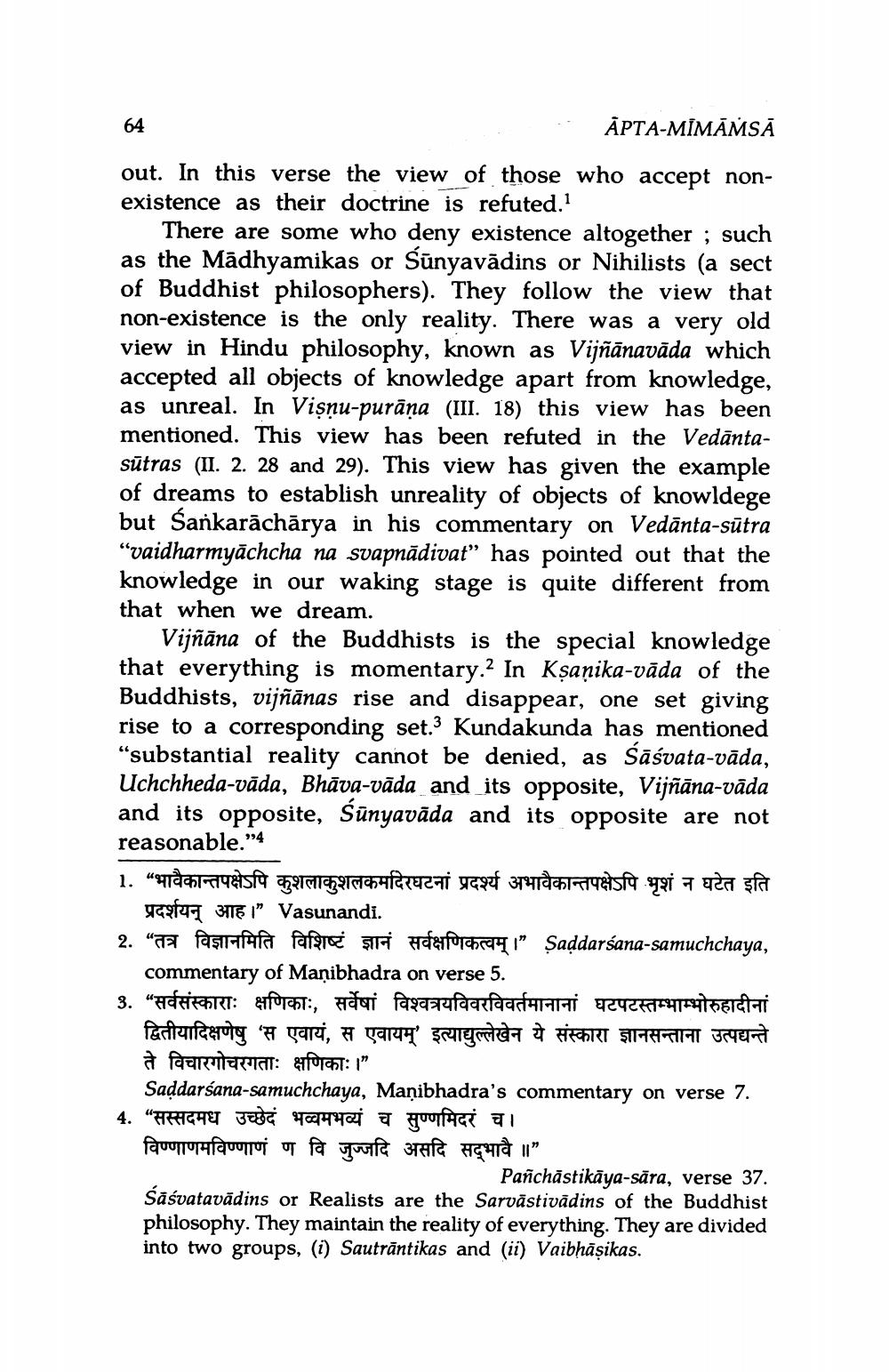________________
64
APTA-MIMĀMSĀ
out. In this verse the view of those who accept nonexistence as their doctrine is refuted.
There are some who deny existence altogether ; such as the Mādhyamikas or Sūnyavādins or Nihilists (a sect of Buddhist philosophers). They follow the view that non-existence is the only reality. There was a very old view in Hindu philosophy, known as Vijñānavāda which accepted all objects of knowledge apart from knowledge, as unreal. In Vişnu-purāna (III. 18) this view has been mentioned. This view has been refuted in the Vedāntasūtras (II. 2. 28 and 29). This view has given the example of dreams to establish unreality of objects of knowldege but Sankarāchārya in his commentary on Vedānta-sūtra "vaidharmyāchcha na svapnādivat" has pointed out that the knowledge in our waking stage is quite different from that when we dream.
Vijñāna of the Buddhists is the special knowledge that everything is momentary.2 In Kșanika-vāda of the Buddhists, vijñānas rise and disappear, one set giving rise to a corresponding set.3 Kundakunda has mentioned "substantial reality cannot be denied, as śāśvata-vāda, Uchchheda-vāda, Bhāva-vāda and its opposite, Vijñāna-vāda and its opposite, Sünyavāda and its opposite are not reasonable."4 1. “भावैकान्तपक्षेऽपि कुशलाकुशलकमदिरघटनां प्रदर्श्य अभावैकान्तपक्षेऽपि भृशं न घटेत इति
yastha 3116!” Vasunandi. 2. " Pasca fafgre ni Heard I" Saddarśana-samuchchaya,
commentary of Manibhadra on verse 5. 3. “सर्वसंस्काराः क्षणिकाः, सर्वेषां विश्वत्रयविवरविवर्तमानानां घटपटस्तम्भाम्भोरुहादीनां
द्वितीयादिक्षणेषु ‘स एवायं, स एवायम्' इत्याधुल्लेखेन ये संस्कारा ज्ञानसन्ताना उत्पद्यन्ते ते विचारगोचरगताः क्षणिकाः।”
Saddarśana-samuchchaya, Manibhadra's commentary on verse 7. 4. “सस्सदमध उच्छेदं भव्बमभव्यं च सुण्णमिदरं च। विण्णाणमविण्णाणं ण वि जुज्जदि असदि सद्भावै ॥"
Pañchăstikāya-sära, verse 37. Sāśvatavādins or Realists are the Sarvästivādins of the Buddhist philosophy. They maintain the reality of everything. They are divided into two groups, (i) Sautrāntikas and (ii) Vaibhāşikas.




